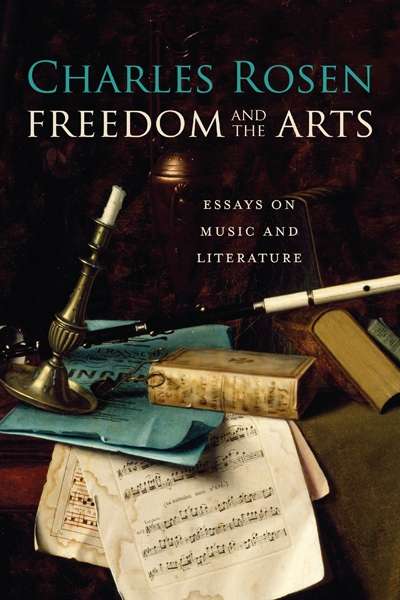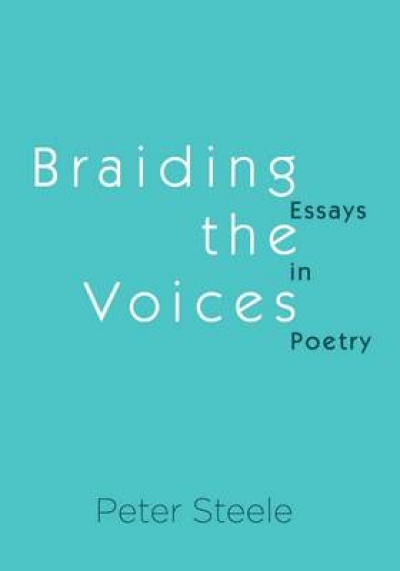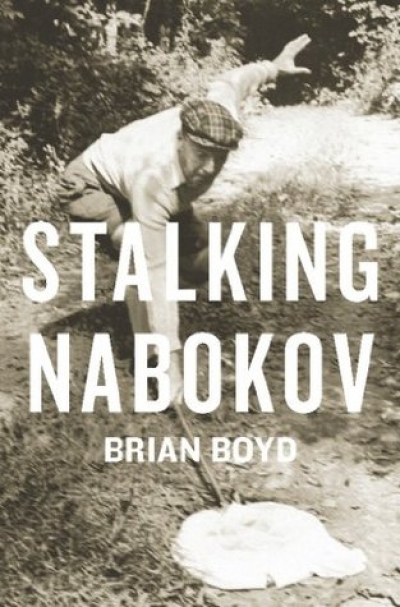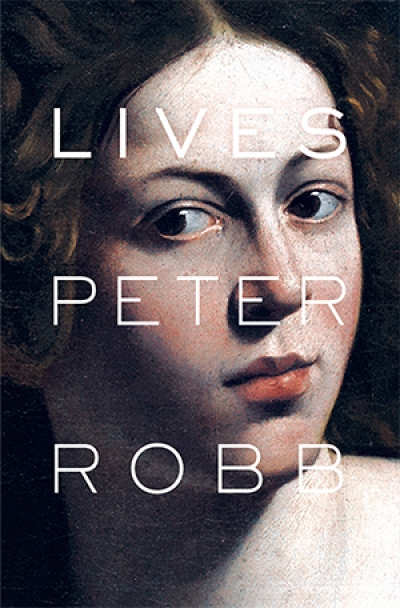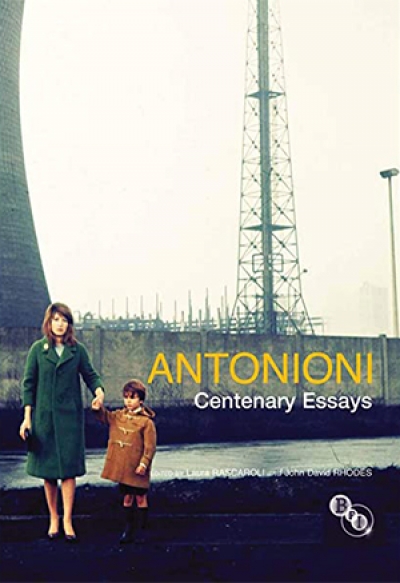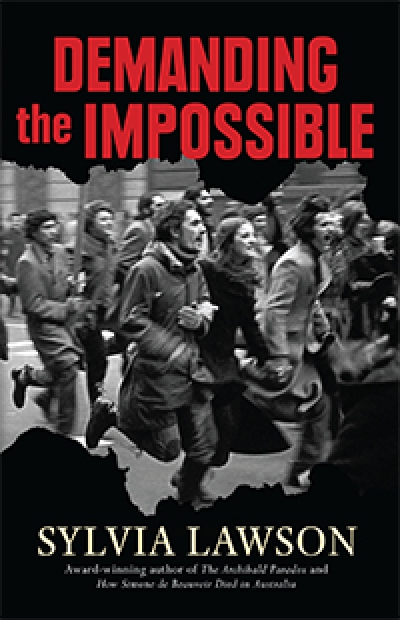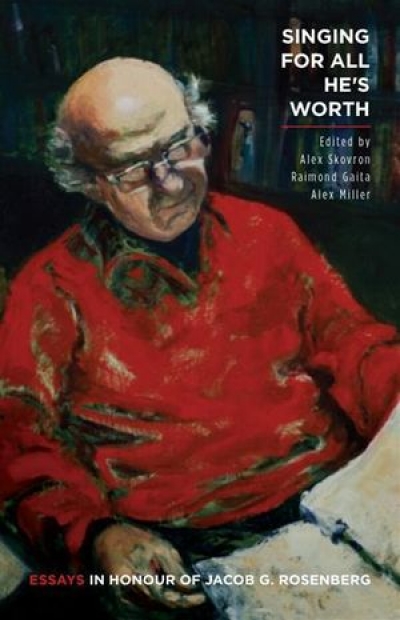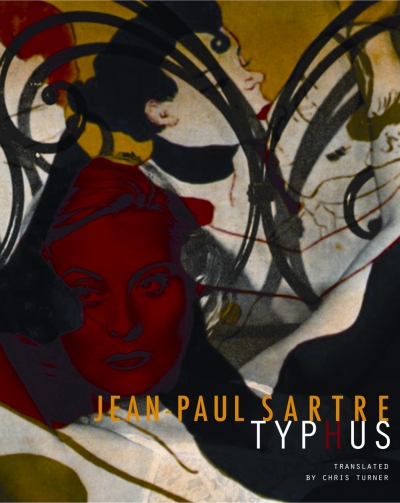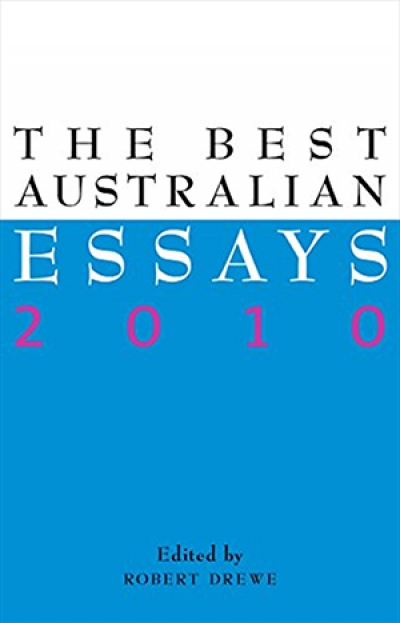Essay collections
Freedom and the Arts: Essays on Music and Literature by Charles Rosen
In one of the most penetrating essays in this wide-ranging collection, the pianist and scholar Charles Rosen, while addressing the topic of ‘La Fontaine: The Ethical Power of Style’, notes in an aside: ‘What is original in Montaigne is the strange path he takes to arrive at the idea.’ It is an observation that might be equally well applied to the author of the twenty-eight pieces in this volume, most of which originated as extended reviews for the New York Review of Books over the past two decades, apart from ‘Too Much Opera’, which dates from 1979 and, to put it politely, rather shows its age. On the other hand, the subsection entitled ‘Mostly Mozart’ includes, along with four previously published pieces, three new essays, which offer clear evidence of Rosen’s gifts as musical and cultural analyst. Covering topics as varied as dramatic and tonal logic in the operas, Mozart’s entry into the twentieth century, and Mozart and posterity, these hundred-plus pages provide a combination of sociology and musicology, history and aesthetics, performance analysis, and a grasp of the secondary literature that is characteristic of the Rosen who was both performer and critic. (He died in December 2012.)
... (read more)Peter Steele once described his teaching and writing as ‘acts of celebration’. He is – and was – quite literally a celebrant: in his role as a Jesuit priest, and as a poet of praise. Those acts of celebration extend to his prose works as well, both his homilies and his literary essays, especially those that take up the matter of poetry. Peter Steele passed away, after a long illness, in June of this year, but not before his latest offering was presented at a book launch he attended the week before he died and a few days after he received a national honour. Unable to speak, he had his brother read a list of five major concerns that animated his poetry and which he looked for in others: ‘Imagination; learning from experience; fascination with experience in all of its many forms; the world imagined in a different way; and earth and spirit interlocked.’ This new book, of eighteen essays and six poems, bears out those concerns, establishing his voice among us in a kind of afterlife, not of fame, but of familiarity, someone we might turn to, that is, as an intimate or a familiar.
... (read more)We are all exiles. In time, if not in space, we are inevitably parted from what is most familiar and dear to us. ‘Loss’ is stamped in all our passports. Vladimir Nabokov understood exile better than anyone. Heir to a wealthy landowning family in Imperial Russia, he escaped the communist revolution of 1917 to a life of genteel poverty in a Berlin boarding house. Eking out a living as a tennis and language tutor, he built a reputation by the 1930s as one of the best Russian writers alive. With his Jewish wife, Vera, Nabokov fled from Germany to France, and then to the United States. His father, a prominent liberal, was shot by a right-wing assassin in 1922. His gay brother, Sergey, was murdered in a concentration camp in 1945.
... (read more)Peter Robb, in this collection of some of his journalism, quotes E.M. Forster’s remark about Constantine Cavafy: that he lived ‘absolutely motionless at a slight angle to the universe’. That line is half true of Robb’s subjects in this book. They have a way of existing at an angle to the universe, but they are not at all motionless. The lives in this book have trajectories and velocities that bring out an equal dynamism in the man who recounts them, as could well be imagined by anyone who has read his earlier work about Italy and Brazil (2004) or his biography of Caravaggio (1998).
... (read more)Antonioni: Centenary Essays edited by Laura Rascaroli and John David Rhodes
Five years after Michelangelo Antonioni’s death, the ground-breaking Italian director’s films occupy an increasingly important but odd position. Exemplifying serious ‘art cinema’ at the peak of its European expression, his most famous work continues to compel yet also cause problems for critical reception. How to write about such demanding and endlessly rewarding films without falling back on what we are often told are the old clichés of ‘alienation’ and chilly formalism? A welcome addition to the slowly percolating appreciations of the film-maker in English, Antonioni: Centenary Essays quite visibly, if not perhaps intentionally, struggles with and exemplifies this challenge.
... (read more)Demanding the Impossible: Seven Essays on Resistance by Sylvia Lawson
Sylvia Lawson is an award-winning and highly respected essayist and film critic. Her subject matter, though generally Australian, is also concerned with our nearer neighbours and with the culture and politics f the world beyond. The theme of this new collection is resistance to oppression in seven parts of the world.
... (read more)The Joy of Secularism: 11 Essays for How We Live Now edited by George Levine
The war of religion currently being fought with fusillades of paperbacks and feuilletons has taken a new turn. It started with an ambuscade by the ‘new’ atheists – also known as ‘militant’ or ‘Darwinian’ atheists – Richard Dawkins, Sam Harris, and the ubiquitous Christopher Hitchens (may he remain so). They were quickly joined by many sympathisers sharing the belief that peace, secularism, and rationality are under assault, not only from religious extremists, but also from the root religious ideas and attitudes that are presumed to nourish them.
... (read more)Singing for All He’s Worth: Essays in Honour of Jacob G. Rosenberg by Alex Skovron, Raimond Gaita, and Alex Miller
With the likes of Helen Garner, Arnold Zable, and Chris Wallace-Crabbe, the contents page of this essay collection reads like a who’s who of Australian literature. The editor–contributors are the poet Alex Skovron, philosopher Raimond Gaita, and novelist Alex Miller. The publisher is Picador. The man honoured in these essays is Jacob Rosenberg.
... (read more)Typhus by Jean-Paul Sartre (translated by Chris Turner) & Critical Essays by Jean-Paul Sartre (translated by Chris Turner)
Those wanting to understand better the radical changes in Western thought and social mores since World War II could benefit from revisiting Jean-Paul Sartre (1905–80). Of course, one can sympathise with Jonathan Rée in his critique of much of Sartre’s work as ‘slap-dash’, ‘long-winded’, ‘carelessly profuse’ (Times Literary Supplement, 26 November 2010). It is true that by the time Sartre became famous, much of his best writing was behind him. Nonetheless, Sartre lived and worked on what we can now identify as a temporal seismic fault-line between then and now. His voluminous and variegated work – short stories, novels, plays, essays, movie scripts, journalism, autobiography, and correspondence, as well as philosophy proper – remains a rich site for investigating the thirty or so years between the mid-1930s and the mid-1960s, that period when, as Thomas Pynchon puts it, ‘a screaming came across the sky’. To re-engage with Sartre is to re-enter the zone of the epicentre, where broken twists of what was once continuous tradition mingle with new developments – some of which we already know to have failed, while others have become familiar features of our present landscape.
... (read more)The Best Australian Essays 2010 edited by Robert Drewe
Michel de Montaigne thought little of constancy. It was change in slow motion, he said – ‘a more languishing movement’. The first and still the most miraculous exponent of the essay form instead bragged about his embrace of all that fluctuates: ‘I do not portray being; I portray passing; not a passage of one age to another ... but from day to day, from minute to minute.’
... (read more)

